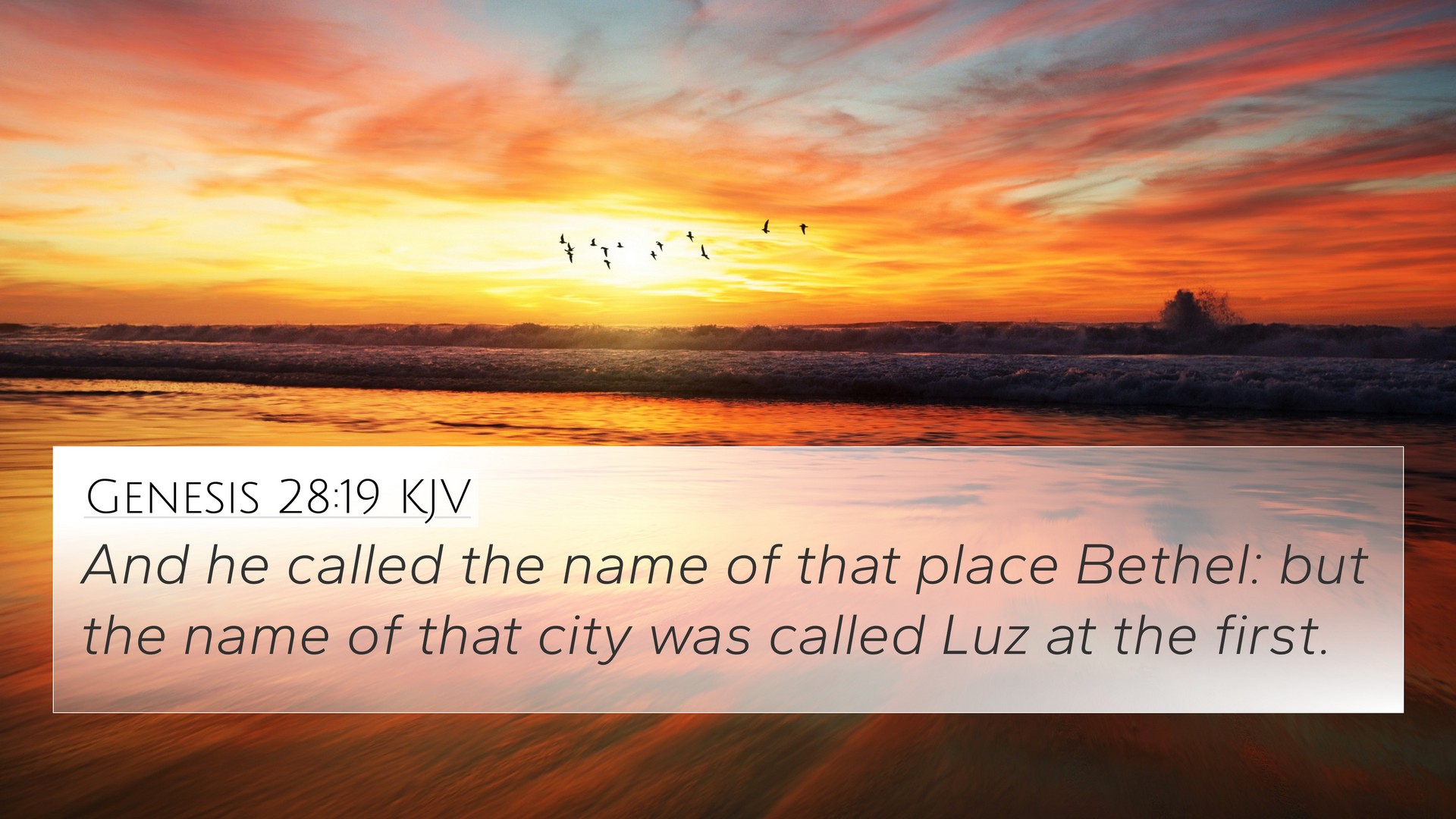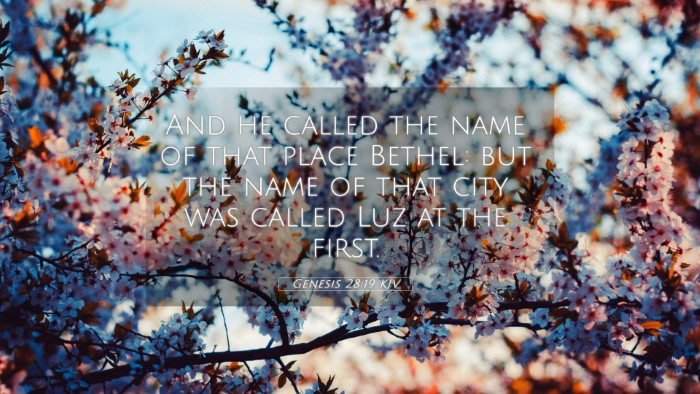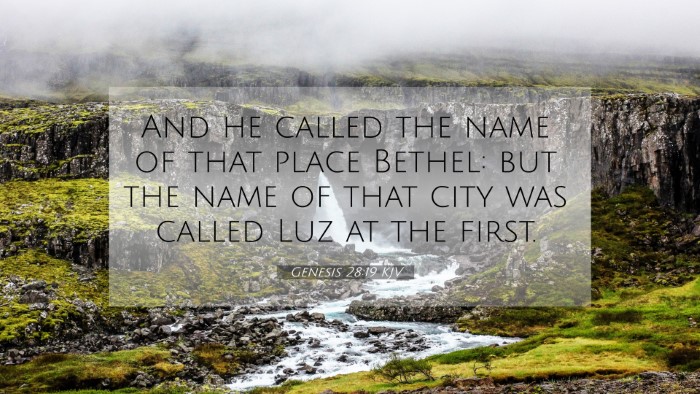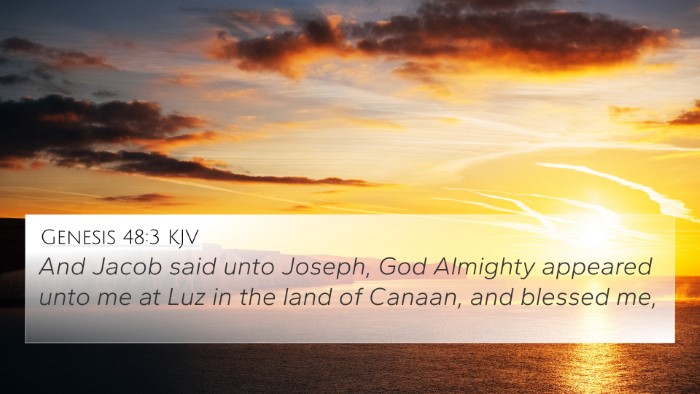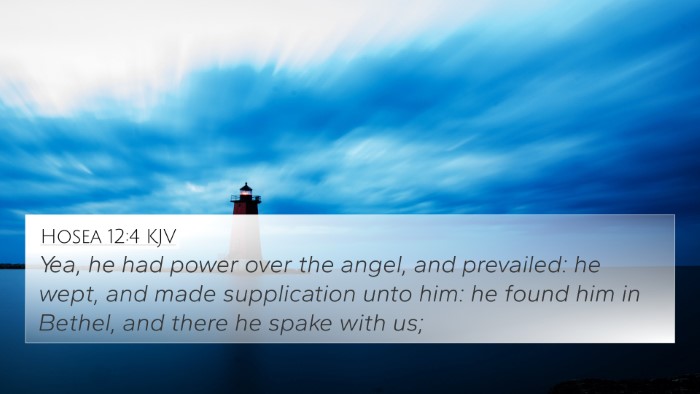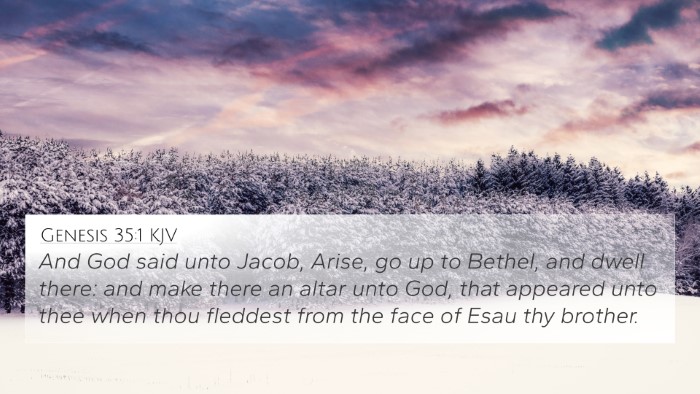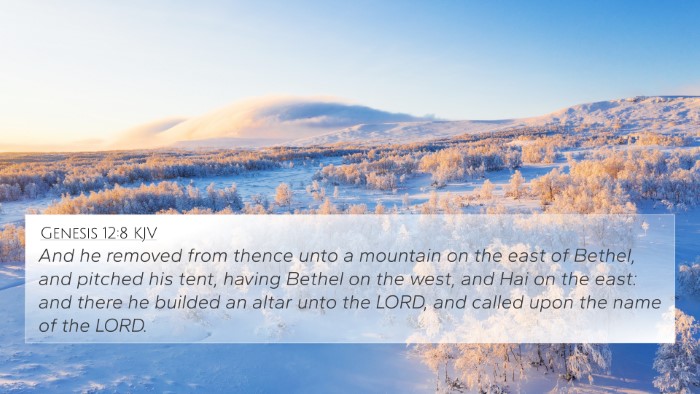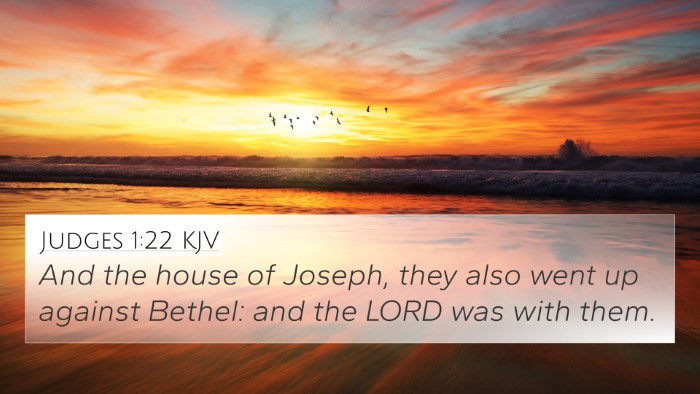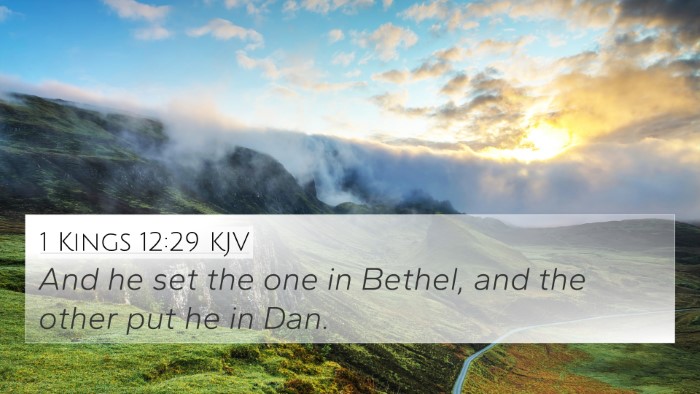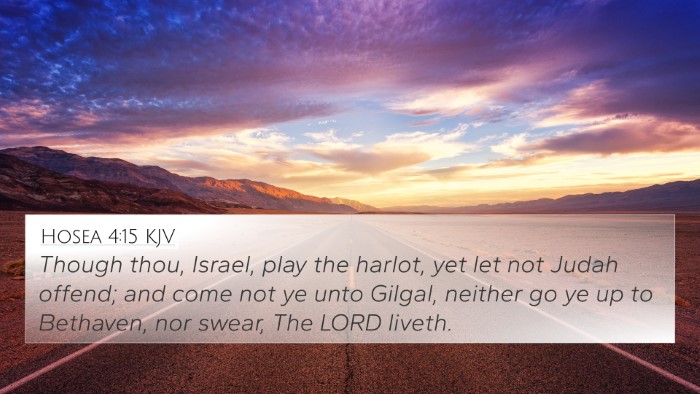Understanding Genesis 28:19
Genesis 28:19 states, "And he called the name of that place Bethel: but the name of that city was called Luz at the first." This pivotal moment in the story of Jacob reflects not only a significant geographical designation but also a profound spiritual awakening and understanding.
Interpretation from Public Domain Commentaries
This verse represents an essential transformation where Jacob, having encountered God, renames the place he slept as Bethel, meaning "House of God." Below are combined insights from notable biblical commentators:
-
Matthew Henry:
Henry emphasizes the significance of names in the biblical narrative, noting that Jacob's act of renaming signals a new understanding and place of worship. He points out that this underscores the notion that marked places can transform into places of divine encounter.
-
Albert Barnes:
Barnes remarks on the contrast between Luz and Bethel, suggesting that Luz symbolizes the old ways of life, while Bethel represents a sacred space where Jacob recognizes God's presence. This transformation signifies the importance of engaging with God in recognized places.
-
Adam Clarke:
Clarke offers insights into the significance of Bethel within the broader biblical context, noting that it becomes a recurring location of worship in Israel's history. Clarke also highlights that Jacob’s experience indicates a shift from a personal experience with God to an acknowledgment of communal significance.
Thematic Connections and Cross-References
Genesis 28:19 encapsulates themes of identity, divine encounter, and sacred spaces. It presents significant connections to other biblical passages such as:
- Genesis 12:8: Abraham calls on the name of the Lord at Bethel.
- Genesis 35:1: God commands Jacob to return to Bethel to make an altar.
- Exodus 3:5: Moses encounters God's holiness at the burning bush, similar to the sacredness of Bethel.
- Joshua 7:2: The city of Ai is near Bethel, highlighting its geographical and spiritual importance.
- 1 Kings 12:29: Jeroboam sets up golden calves at Bethel as a place of worship.
- Hosea 12:4-5: Reflects on Jacob's experience at Bethel, indicating its lasting significance.
- Hebrews 11:21: The acknowledgment of Isaac and Jacob’s faith, highlighting the relevance of their experiences and places of worship.
Application for Cross-Referencing Studies
For those studying Genesis 28:19, employing cross-referencing methods can unveil deeper meanings and connections between Bible verses. Here are some suggestions:
- Utilize a Bible concordance to find related terms and themes across scripture.
- Engage in cross-reference Bible study to uncover how Bethel is illustrated throughout the Old and New Testaments.
- Apply tools for Bible cross-referencing to explore thematic connections and parallels in the narrative.
- Examine other examples of scriptural cross-referencing to compare how different characters respond to God’s presence.
The Importance of Cross-Referencing in Biblical Study
Cross-referencing biblical texts allows readers to see the interconnectedness of God's word. For Genesis 28:19, the connections made to subsequent scriptures enrich understanding by providing a broader context.
Concluding Thoughts
In conclusion, Genesis 28:19 serves as a vital link in the narrative of Jacob's life and a testament to the significance of meeting God in specific places. It encourages believers to recognize where they have encountered God and to view those spaces as holy. Through this exploration, one can appreciate the intricate web of connections that Scripture offers, enhancing one’s understanding of biblical theology and personal faith.
